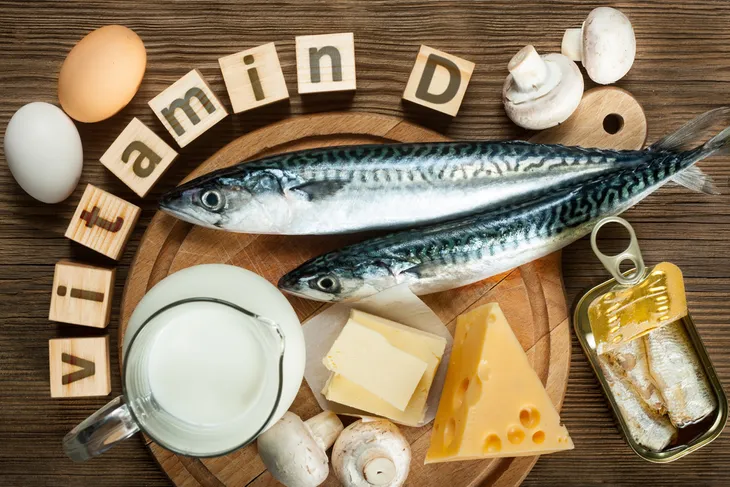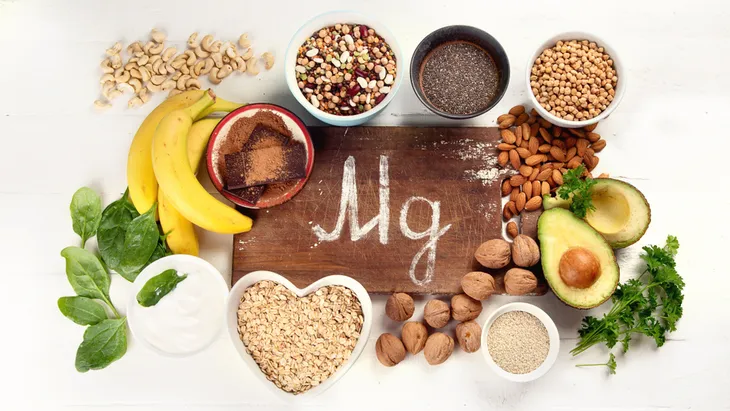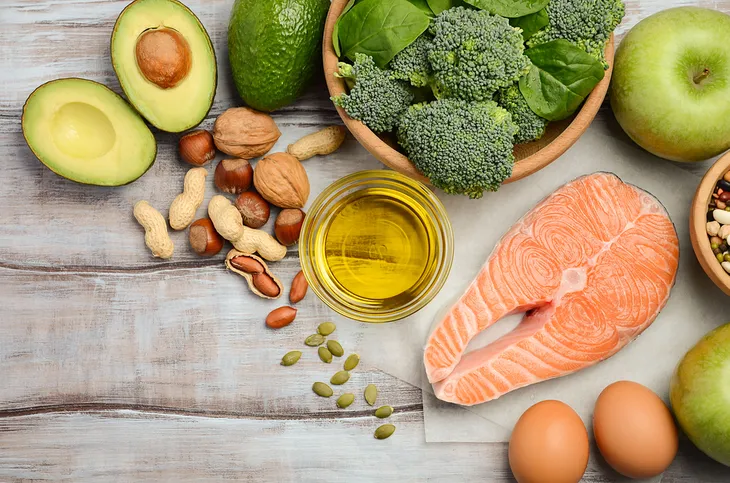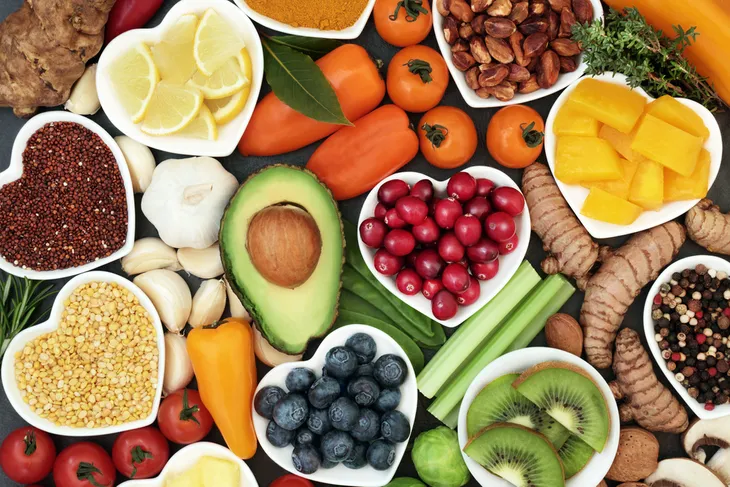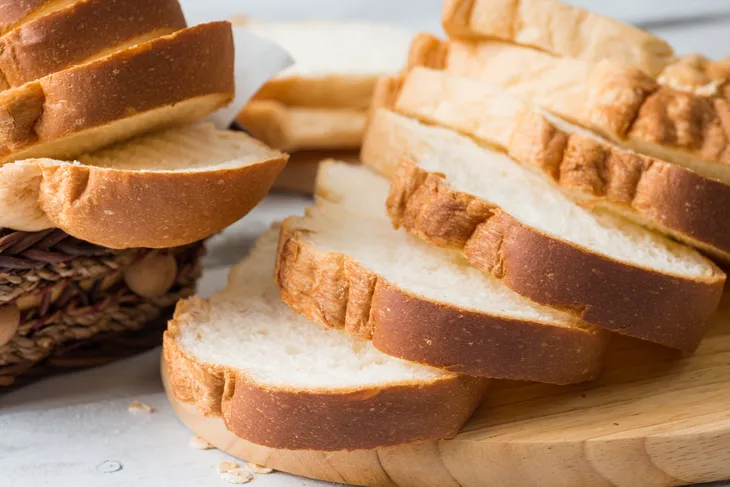Pain, fatigue, and tenderness are all common symptoms of fibromyalgia, a chronic disease that affects approximately 5 million people in the United States alone—most of whom are women.
It’s not yet known what causes fibromyalgia, which makes treatment all the more challenging. Fortunately, some dietary changes may help improve symptoms. Although there isn’t a specific plan that works for everyone, there are some foods that have been found to trigger pain, and others that seem to help reduce it—including the following 12.
Foods to Eat:
Foods Rich in Vitamin D
Vitamin D is a common deficiency among adults, including those with fibromyalgia. But getting enough of the nutrient is especially important for people with this disease, as it has been found to help reduce pain.
Vitamin D can be found naturally in some breeds of fish, particularly those that live in cold water environments, such as swordfish, tuna, and sockeye salmon. The nutrient is also in eggs, as well as fortified foods like milk and orange juice. These foods aren’t the only way to up your vitamin D intake, though. Sun exposure is also an excellent source, although it’s important to be mindful about protecting your skin against harmful rays.
Foods Rich in Magnesium
Like vitamin D, magnesium has also been found to reduce pain in those with fibromyalgia. Fortunately, there are a wide variety of foods that are rich in this mineral. Dark, leafy greens like kale, spinach, and Swiss chard are among the best sources.
Magnesium can also be found in beans, lentils, nuts (like almonds), seeds (such as pumpkin seeds), avocados, bananas, dark chocolate, and fatty fish (i.e. salmon, mackerel, and herring). To help ease the symptoms of fibromyalgia, Dr. Axe recommends eating “a minimum of three servings a day of these foods.”
Foods Rich in Omega-3 Fatty Acids
Not only are they rich in magnesium, but many of the above mentioned foods are also excellent sources of omega-3 fatty acids. According to Everyday Health, “Omega-3 fatty acids may reduce levels of oxidative stress, as well as lower levels of inflammation and boost immunity.”
To boost your intake, try eating more wild-caught fish (like salmon), walnuts, or seeds (such as flax and chia). Or consider taking it in supplement form, but be sure to avoid capsules, as the source says the gelatin found in them “contains the amino acid aspartate,” which “may active a glutamate receptor on nerve cells that’s implicated in fibromyalgia.”
Foods Rich in Antioxidants
Earlier, we mentioned the term ‘oxidative stress,’ which Prevention defines as “…when the body doesn’t produce enough antioxidants to battle cell-damaging free radicals in the body.”
How do you combat oxidative stress? But increasing your intake of foods that are rich in antioxidants! Fortunately, they can be found in abundance in a variety of fruits and vegetables, especially those that are vivid in color—such as berries, sweet peppers, carrots, beets, spinach, and kale.
Foods to Avoid:
Artificial Sweeteners
Now that we’ve talked about the nutrients that are important to a fibromyalgia diet (and the sources in which to find them), let’s delve into the foods you should avoid. First up are artificial sweeteners—including aspartame, saccharin, and sucralose—as these additives “can act as excitotoxin molecules, a chemical group that has the ability to activate neurons that increase sensitivity to pain,” says Prevention.
Marketed as a ‘healthy’ alternative to sugar, aspartame can be found in a wide array of foods and beverages, including diet drinks, yogurts, and chewing gum. In addition to worsening the pain associated with fibromyalgia, Dr. Axe warns that aspartame “contain compounds linked to cancer, thyroid conditions, memory loss and seizures.”
MSG
Another additive that is known to worsen symptoms of fibromyalgia is monosodium glutamate, more commonly referred to as MSG. Sure, it helps to preserve and enhance the flavors of food, but NewLifeOutlook.com says it is also “full of salt, which can aggravate pain or swelling in some fibromyalgia patients.”
To eliminate your intake of MSG, the source recommends you “avoid prepackaged foods as much as possible,” and instead focus on consuming whole foods like those we mentioned earlier. And, if you choose to eat at restaurants or order take out occasionally, “Take note of restaurants who have chosen not to use MSG in their preparation.”
Caffeine
I hate to break it to you, but your morning cup of Joe’s got to go. As do any other caffeinated beverages you consume throughout the day, including tea, energy drinks, and soda. Why? Because caffeine can contribute to commonly experienced fibromyalgia symptoms like “restless sleep and insomnia, anxiety, muscle tremors and depression,” says Dr. Axe.
While the above mentioned beverages are the most common sources of caffeine, Dr. Axe adds that you should be mindful of places in which it may be hidden, such as over-the-counter pain medications, chocolate bars, diet pills, and even some processed foods.
Refined Carbohydrates
Refined carbohydrates—such as those found in pastries, cookies, and white bread—are certainly delicious, but they’re no good for your blood sugar levels. Veritas Health explains that these foods “are digested quickly, causing blood sugar levels to spike,” but not for long. When they crash, you will feel like your stomach is a gas tank on empty, in need of refuelling.
The source says, “These fluctuations can make the fatigue and pain of fibromyalgia worse and contribute to overeating.” To avoid these spikes and drops in blood sugar levels, be sure to choose whole wheat foods instead, as they take longer for your body to digest.
Unhealthy Fats
People with fibromyalgia should also steer clear of unhealthy fats, which are aplenty in fried and processed foods, as well as things like doughnuts, cookies, crackers, and pizza. Although these foods are convenient, they are known for worsening fibromyalgia symptoms and inflammation.
In addition to unhealthy fats, many of these foods contain additives, sugar, and processed grains, all of which are linked to worsened fibromyalgia symptoms. They also tend to contain processed vegetable oils, either as an ingredient or because that’s what they’re fried in. These oils—which include corn oil, peanut oil, and safflower oil, among others—have an inflammatory effect.
Alcohol
If you notice your pain and fatigue worsen after indulging in alcoholic beverages, it may mean you need to give them up. This is because “Alcohol dehydrates the body, which can make the pain in your muscles feel even worse,” explains FightFibromyalgia.net.
Additionally, Veritas Health says some fibromyalgia medications and alcohol do not mix and “could cause harmful interactions.” These include “anti-convulsants, antidepressants, and acetaminophen (an ingredient in many medications).” As such, it’s important to speak to your physician about consuming alcohol with your condition, even if it doesn’t seem to cause symptoms to flare up.
Gluten
While it was recommended earlier to choose whole wheat foods, for some people it’s best to avoid wheat altogether—along with barley and rye products. What do all of these foods have in common? They contain gluten.
Gluten intolerance is the very definition of celiac disease; a condition that NewLifeOutlook.com says “may overlap with fibromyalgia in some people.” If you’re concerned you may be one of these people, be sure to make an appointment with your doctor to confirm diagnosis. Fortunately, avoiding gluten is far less challenging these days, as many companies are making gluten-free food options.
Dairy
Celiac disease isn’t the only condition that can overlap with fibromyalgia; lactose intolerance is another. Common symptoms of lactose intolerance include gas, bloating, and cramping after consuming dairy products.
If these symptoms sound familiar, FibromyalgiaTreatmentGroup.com says to “try going without dairy for a few weeks to see if you notice any improvements.” If dairy seems to be the culprit, there are many alternative products available to try, such as nut and soy-based milks, cheeses, yogurts, and butters.

